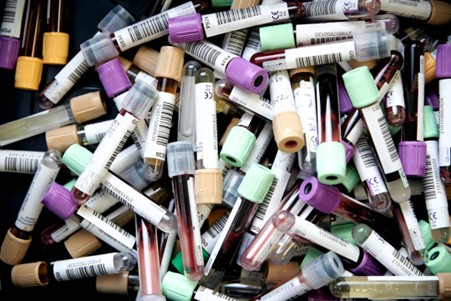At-Home Blood Testing
At-home blood testing has emerged as a significant player in the realm of personal health management. It empowers individuals to take charge of their well-being by providing easy access to health data that was once only obtainable through clinical settings. With the rise of these self-administered tests, people can now detect potential health issues early and track changes over time. As the healthcare landscape continues to evolve, at-home blood testing stands out as both a convenient and revolutionary approach to staying on top of one’s health. In this article, we will delve into the pivotal role that at-home blood testing plays in modern health management.
Table of Contents
Understanding At-Home Blood Testing and Its Role in Health Management

At-home blood testing has become more accessible and user-friendly thanks to recent advancements. Using simple finger-prick kits like those from Blue Horizon Blood Tests, individuals can collect samples and send them to labs for analysis of cholesterol, hormone levels, and other key health markers, without needing a doctor’s visit.
This convenient option supports frequent monitoring, especially for chronic conditions like diabetes or heart disease. As more tests become available—from vitamin checks to genetic insights—at-home testing empowers people to take charge of their health from the comfort of their home.
The Convenience and Privacy of Self-Monitoring Health Indicators
At-home blood testing appeals largely due to its convenience, allowing individuals to fit health monitoring into busy schedules without needing appointments. Privacy is a key factor, as these tests enable discreet access to sensitive health information, especially for areas like sexual health, fertility, and mental health.
The self-directed approach fosters greater personal engagement, empowering users to take ownership of their health and motivating proactive lifestyle changes or medical follow-ups. Results are delivered via secure online platforms, enhancing confidentiality and control over personal health data. This combination of convenience, privacy, and autonomy drives the growing popularity of at-home blood testing.
How Reliable Are Home Blood Test Results Compared to Traditional Lab Tests?
Concerns about the reliability of at-home blood tests are common, but many meet the same quality standards as medical facility tests. Reputable providers validate their kits and use accredited laboratories with strict quality controls. Accuracy depends largely on users following instructions carefully, as improper handling can affect results.
To reduce errors, providers offer detailed guides and support. The reliability also varies by the type of biomarker tested—some are more stable and suitable for home testing, supported by extensive clinical validation. Services like Blue Horizon Blood Tests enhance confidence by providing comprehensive support, helping users achieve results comparable to traditional lab testing.
The Impact of At-Home Testing on Early Detection and Preventive Healthcare

At-home blood testing plays a crucial role in early disease detection by enabling more frequent health monitoring, allowing changes to be identified sooner than during infrequent doctor visits. This timely access to health data supports preventive healthcare, empowering individuals to take proactive steps or seek intervention before conditions worsen.
As patients become more engaged in managing their health, they are more likely to adopt behaviors that reduce the risk of acute medical episodes, easing the strain on healthcare systems. Beyond individual benefits, widespread use of at-home testing could shift healthcare toward prevention and early intervention, promoting overall healthier populations through proactive management rather than reactive treatment.
Integrating Home Blood Test Results into Your Overall Health Plan
At-home blood tests provide valuable health insights but are most effective when combined with professional healthcare guidance. Discussing results with providers ensures proper interpretation and coordinated follow-up. Technology enables seamless integration of these results into digital health platforms, offering a holistic health overview accessible to both patients and doctors. This integration enhances traditional care rather than replacing it.
Continuous tracking of personal health data supports predictive analytics, allowing tailored health recommendations based on observed trends. In managing chronic diseases, combining at-home testing with medical advice enables precise medication adjustments and lifestyle changes. Such collaboration advances personalized medicine and patient-centered care by addressing individual health needs more effectively.
Overall, at-home blood testing represents a transformative development in the way we manage health in the 21st century. By facilitating early detection and encouraging a proactive stance on health, these tests can significantly contribute to an empowered approach to healthcare. As they become more integrated into our daily lives, the traditional boundaries of medical monitoring and health management continue to shift, paving the way for a more informed, healthier society.

